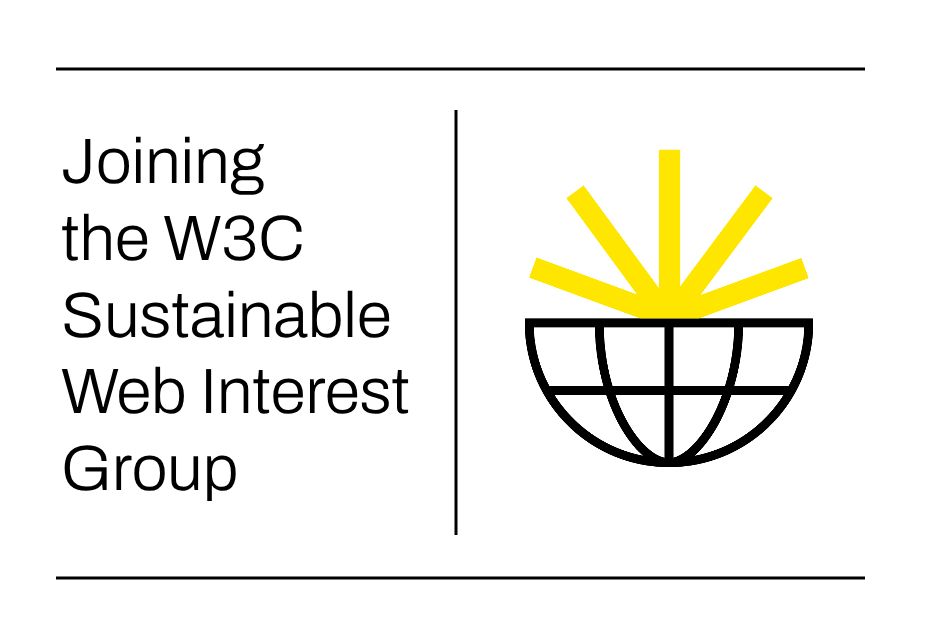Yesterday, Senator Ed Markey introduced the first legislation to explicitly refer to the environmental impacts of AI , together with several other members of Congress in the USA. Earlier in January we had been approached for feedback about a draft version of the bill, and we were happy to publicly endorse it. In this post we outline why we did so.
Why care about the environmental impact of AI?
We care about a just and sustainable internet, and our organisation’s mission is to reach a fossil free internet by 2030.
Even if there weren’t all kinds of justice implications with wider adoption of AI in society, the rapid adoption of technology like AI would, if mismanaged, make a transition from fossil fuels much slower and less equitable. At the very least, any new energy demand coming from AI should come from new, additional, fossil-free sources of energy, but there’s also a wider conversation about whether we should automatically assume mass adoption is necessary and desirable, even if the power came exclusively from clean sources.
Why is this bill important, and why does it matter?
We’ve flagged up in our own report The Fog of Enactment: Priority areas for research in digital sustainability how ambiguity, and unequal access to information is used by various actors to influence policy. This often happens in arenas where innovation is common, and expertise is highly technical – and AI is one such field. This bill is important because it lays out measures that would go a long way to making data-informed discussions about AI, and its environmental impact both possible and likely – helping clear some of this fog.
This bill would (amongst other things) direct the National Institute of Standards and Technology (NIST) to develop standards to measure and report the full range of artificial intelligence’s (AI) environmental impacts, as well as create a voluntary framework for AI developers to report environmental impacts.
While we’d like to see more ambition, we recognise that is significant step forward compared to what we have now. To date, the lack of consistent and comparable data has been a blocker for technologists, researchers, policymakers and civil society. Finally, while this bill is referring to AI, these issues are endemic across the entire digital sector.
How does this bill compare to other legislation referring to the environmental impacts of digital technology?
In Europe, while we may have the European AI Act, which explicitly aims to regulate how to AI is used, it’s comparatively light on details about the envirionmental impacts of its use, or pollution caused throughout AI hardware’s lifecycle. This is something the new bill is arguably stronger on.
Similarly, while the European Energy Efficiency Directive mandates much more detailed disclosure about direct impacts of digital infrastructure, it is comparatively silent about how digital technology can be used to induce more climate pollution, like accelerating drilling for oil and gas, and so on. This is a something of a blind spot for both the European AI Act, and the Energy Efficiency Directive, so we welcome long overdue attention being paid in this new bill as well.
Who is proposing this bill, and who is backing it?
This bill is being proposed by US Senator Ed Markey, one of the key authors of Green New Deal, and chair of the Senate Environment and Public Works Subcommittee on Clean Air, Climate, and Nuclear Safety. You can see the full text of the bill in the PDF document linked below:
We were in good company when we endorsed this bill. We endorsed this legislation alongside Hugging Face, Data and Society, Climate Change AI, Public Citizen, Sierra Club, Electronic Privacy Information Center, Greenpeace USA, Union of Concerned Scientists, Sustainable Digital Infrastructure Alliance, and Access Now.
As founding members of the Green Software Foundation, an industry body made of the firms who would be disclosing more information to inform public discourse about the role AI plays, we lobbied hard for endorsement there. They have come out in favour too, meaning this this bill has broad support from civil society, policy makers, as well as key actors in the private sector.
Where can I learn more?
Senator Markey’s website has a full press release page with quotes from various supporters. Many of the organisations have written more about why they supported the bill too.
For further comment from the Green Web foundation, please see the options on our contact page.



